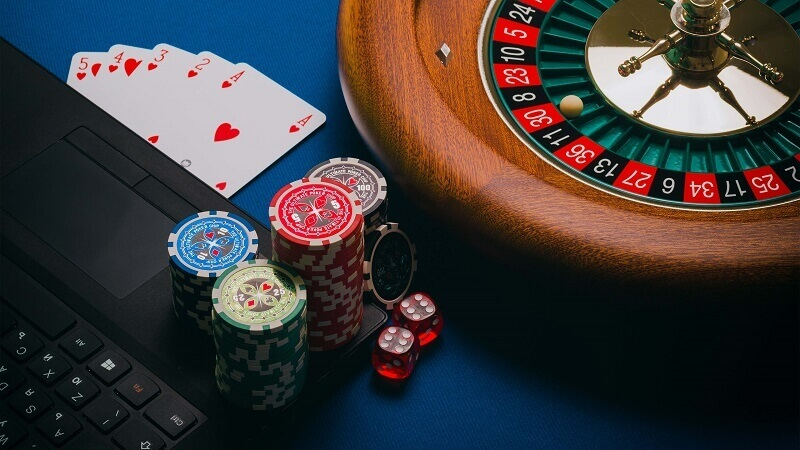
How Casinos Use Psychology to Keep You Playing
Casinos are designed to keep you playing for as long as possible, and it’s not just luck or chance that keeps people coming back. Casinos use psychological tactics that exploit human behavior and emotions to encourage players to stay longer, bet more, and keep gambling.
Understanding these techniques can help you become more aware of how your environment affects your gambling habits. In this post, we’ll explore some of the most common psychological strategies casinos use to keep you hooked.
1. The Use of Sound and Music
Casinos use sound and music to create a sensory experience that enhances excitement and keeps players engaged. The sounds of slot machines ringing, the cha-ching of a jackpot, or the background music playing in the casino are carefully chosen to evoke emotions that encourage continued play.
- Rewarding Sounds: When you win, you’re greeted with a loud, attention-grabbing sound to reinforce the positive experience. These sounds make players feel more excited and encourage them to keep playing in hopes of winning again.
- Upbeat Music: Upbeat music creates a sense of energy and excitement, keeping players in a lively mood. In some cases, casinos use music with a fast tempo to keep players alert and energized.
These auditory cues subconsciously increase excitement and help you become more focused on the game, making it harder to leave.
2. The Illusion of Near Wins
Casinos often use the illusion of near wins to make players feel like they are very close to hitting a jackpot, even when they haven’t won. For example, on slot machines, you might see the symbols land almost perfectly aligned, but not quite enough to win. This creates a feeling of “just one more spin”, leading players to gamble more in the hope of getting the next win.
The near-miss effect is a powerful psychological tactic. It triggers the brain’s reward system, making you feel like you’ve almost succeeded, which increases your desire to continue playing.
3. The Sunk Cost Fallacy
The sunk cost fallacy is the tendency to continue an activity because you’ve already invested time or money into it, even if it no longer makes sense to do so. In a casino, this is often used when players have lost money but feel like they need to keep playing to recover those losses.
For example, if you’ve already spent $200 at a blackjack table, you might think, “I’ve already lost so much, I need to keep playing to win it back.” This mindset traps players into thinking they need to keep going in order to avoid feeling like they’ve wasted their money.
Casinos know that this psychological principle will make you stay longer, as you feel compelled to make up for your losses.
4. The Use of Lighting and Environment
Casinos are designed to create an environment where time and space seem irrelevant. Lighting plays a significant role in this design. Bright, flashy lights around slot machines, for example, draw your attention and create a sense of excitement. The lack of windows and clocks means you lose track of time, which makes you stay in the casino longer than you planned.
- Dim Lighting: Dim lighting in the casino encourages relaxation, while bright lights on the gaming floor signal excitement and action. This contrast keeps players engaged and energized.
- Open Layouts: The layout of a casino is strategically open and wide, making it easy to move from one game to another. This layout encourages exploration, keeping players within the casino and preventing them from leaving.
5. Free Drinks and Comps
One of the most well-known tactics casinos use is offering free drinks and comps (complimentary items) to players. While it may seem like a generous gesture, these perks are designed to keep players in the casino longer and encourage them to spend more.
- Free Alcohol: Casinos offer free alcohol to players as a way to make them feel more relaxed and at ease, which can lead to increased risk-taking behavior. Alcohol lowers inhibitions, making players more likely to make larger bets or keep playing longer than they intended.
- Comps: Casinos offer free meals, hotel stays, or even show tickets to loyal players. These rewards make players feel special and valued, increasing the likelihood of return visits. The idea is that the more you play, the more comps you’ll earn, which creates a sense of loyalty and investment in the casino.
6. The Use of Rewards and Loyalty Programs
Casinos use rewards and loyalty programs to keep you coming back. These programs are designed to make you feel like you’re gaining something for your money, even if you’re losing in the long run. The idea is that the more you play, the more points you accumulate, which can be redeemed for perks like free spins, meals, or even cash.
These programs capitalize on the operant conditioning principle—rewarding you after certain behaviors to reinforce the desired action. For example, when you reach a specific reward tier, the sense of accomplishment encourages you to continue playing to unlock even more perks.
7. The “Hot Streak” Illusion
Many gamblers believe in the concept of a “hot streak,” where they think they’re on a winning roll. Casinos take advantage of this psychological tendency by reinforcing the idea that some games or players are just “lucky” during certain sessions.
In reality, gambling outcomes are based on chance and probability, not patterns. However, when you’re on a “winning streak,” you’re more likely to make larger bets and stay at the table longer, believing that the good luck will continue.
Casinos play into this illusion to make you continue gambling, even when you’re in the middle of a losing streak, hoping to turn things around.
8. Social Influence and Peer Pressure
Casinos often foster a social environment where players feel the pressure to continue playing in front of others. When you’re playing at a table with other people, it’s easy to get caught up in the excitement of the group.
The sight of other players winning big can make you want to stay at the table or slot machine, hoping you’ll experience the same luck. Peer pressure and social influence can be powerful motivators, especially when everyone around you seems to be having fun and winning.
9. The Availability of Instant Gratification
Casinos offer instant gratification, where wins are delivered immediately. Whether it’s the quick spin of a slot machine or a blackjack hand dealt in seconds, players experience a sense of immediate reward that keeps them coming back for more.
This quick-paced feedback loop gives players a dopamine rush, making them feel good after each win, no matter how small. The constant reinforcement of winning keeps them engaged and more likely to keep playing.
Final Thoughts
Casinos are highly skilled at using psychology to keep players engaged and coming back for more. From sound and music to lighting and social influence, casinos create an environment that taps into human emotions and behavior, making it easier to stay longer and spend more money.
Being aware of these tactics can help you make more informed decisions about your gambling habits. By recognizing these psychological tricks, you can better manage your play and ensure that gambling remains a fun and controlled experience.

